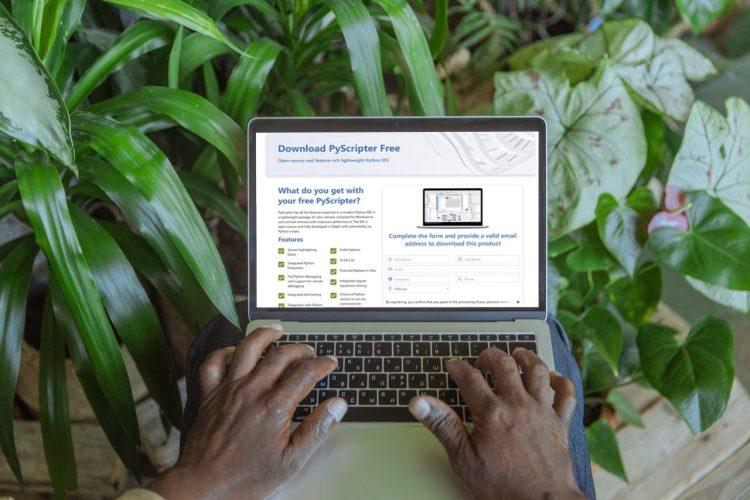
Although software testing in Python is a broad topic, it doesn’t have to be challenging. In a few simple steps, you can get started developing basic tests for your application, and you can expand from there. Excellent testing tools are already present in the Python standard library. Utilizing the language’s built-in capabilities will help you create robust test automation. But because Python is used for many things, including creating Python automation testing tools, API testing, and adding test automation to a Python codebase is simple, you might sometimes need some more test libraries as options for efficient testing. This article will discuss the 6 top Python testing tools.
Table of Contents
What is Python testing?

In the world of testing, automation testing is a well-known context. In this scenario, a script rather than a human is used to carry out the test plans. Python includes the tools and libraries needed to support automated system testing. Writing test cases in Python is comparatively simple. Python-based test automation frameworks are rising in popularity along with the use of Python.
How to differentiate between automated and manual testing?
You must list all the features of your application, the various input types it can accept, and the anticipated outcomes of having a full set of manual tests. Then, you must double-check each item on that list every time you modify your code. However, this is clumsy.
Automated testing, a more efficient software testing technique, can help with that. Test automation involves using a script rather than a human to carry out your test plan (the components of your application you want to test, the order in which you want to test them, and the anticipated responses).
Test automation makes work easy in the long run. You can already build automated tests for your application with Python’s built-in tools and libraries.
What are the six best options for automated testing in Python?

Let’s discuss the top six options for automated Python testing.
What is PyUnit?
The default Python test automation framework is known as PyUnit or Unittest. It became a part of the Python standard library in version 2.1 and is backward compatible with all later iterations of the language. A Python version of JUnit, the common unit testing framework for Java, is called PyUnit.
Therefore, it will be very simple for developers to switch from Java to Python. Kent Beck’s Smalltalk testing framework is responsible for creating both testing frameworks.
The PyUnit test framework provides you with all the tools you may need to create automated tests, including:
- Fixtures that help you can set up and tear down the objects required in a test.
- Provide you with methods so that you can perform the actual tests.
- Help you group test classes into logical units using Suites.
- Finally, provide you with runners for executing tests.
How is PyTest as an automated testing framework?
A superset of PyUnit’s features is available in PyTest, a native Python test library. Its architecture isn’t modeled but rather has a distinct Python flavor. It uses Python decorators and assertions a lot.
Additionally, PyTest supports parameterized testing, which facilitates code coverage and promotes code reuse.
PyTest has its support for test discovery in addition to fixtures, suites, and test runners. You can choose which tests to run based on the method names, packages, or decorators you add to your test code. PyTest also supports parallel test execution. Combined, these features make managing sizable code bases simpler than PyUnit.
Is Behave one of the preferred test automation tools?
Behave is a behavior-driven (BDD) test framework. As opposed to PyUnit and PyTest, you write your tests in the Gherkin language used by Cucumber. Despite not being an official Cucumber variant, it is one of the most widely used BDD frameworks for Python and fully supports Gherkin.
Because Behave is so popular, PyCharm Professional Edition from JetBrains includes a plugin. In addition, a wealth of online guides and documentation are also available for using Behave.
Your tests are written using a natural language grammar that describes a feature in terms of behavior and expected test results. Then you write your tests with annotations that match the conditions and behavior. Finally, the test is administered, the data is gathered, and it is recorded in your behavior files by behave.
What is Lettuce used for in terms of a Python test?
Lettuce is a Python and Selenium tool for behavior-driven automation. It uses a text syntax similar to Behave’s based on Gherkin to describe test scenarios, but it is not quite as compatible. Nevertheless, Lettuce works well with small projects and has a smaller footprint than Behave.
Additionally, integrating it with frameworks like Selenium and Nose is simple.
What features does the Robot framework have?
The most well-known Robot Framework is a Python-based open-source automation testing framework. This framework was created entirely in Python and is used for test-driven development and acceptance testing. In the Robot framework, test cases are written in keyword style.
The Robot can run Java and .Net and supports cross-platform testing for desktop, mobile, and web applications on Windows, Mac OS, and Linux operating systems.
Robot also serves as a tool for robotic process automation and acceptance testing (RPA). Moreover, Robot installation is highly advised using Pip (Package Installer for Python).
Can you perform efficient tests using Nose2?
The Nose2 is a Python-based unit test framework capable of running Doctests and UnitTests.
Since Nose2 is based on unittest, and for this reason it is also known as extend unittest or unittest with the plugin designed to simplify and ease testing. Nose supports many functions for writing tests and exceptions and uses collective tests from unittest.testcase.
Additionally, it allows for the simultaneous definition of package fixtures, classes, modules, and complex initialization in place of frequent writing.
Do you know all about Python testing automation?

Over the past ten years, Python has steadily gained in popularity. You probably use Python already or are planning to add it to your toolkit soon.
Python’s growing popularity, frameworks, testing tools, and other utilities have increased. The top six options for you successfully covered in our discussion today. These frameworks are compatible with PyScripter, the best IDE.
What is PyScipter?
To complement the excellent Python for Delphi (P4D) components by offering a robust scripting solution for Delphi applications, PyScripter was initially developed as a compact IDE.
Why do developers love PyScripter?
Many developers consider PyScripter to be one of the most feature-rich Python IDEs on the market right now.
This IDE guarantees automatic test generation, enabling you to carry out unit testing automatically. It also has a fantastic GUI for unit testing. Additionally, it provides a sophisticated graphical user interface for running unit tests, a common Python module, in its unit tests window. So, PyScripter makes the software testing process easy as you can write test cases conveniently.
Now put all this knowledge to work and use PyScripter today for Python automation testing tools!
